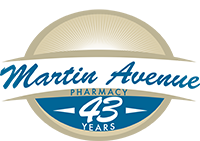D-Mannose
D-Mannose: Natural Therapy for UTI
Urinary tract infections are frequently initiated by bacterial adherence to mucosal surfaces in the lower urinary tract. Oral therapy with the naturally occurring simple sugar D-mannose may lessen this adherence. D-mannose is excreted unchanged and concentrates in the urine, and may relieve initial symptoms or a long-standing, chronic infection. E. coli , a bacteria that is the most common cause of UTIs, stick s to the walls of the bladder by attaching to mannose molecules that are naturally produced by the mucosa (tissue that lines the walls) . When free D-mannose is present inside the bladder, it will competitively block the bacterial adherence to bladder mucosa. E. coli that attaches to the free D-mannose molecules are promptly eliminated in the urine. Clinical practice has shown that ingested D-mannose is a benign, practical, and effective therapy , sometimes as efficacious as antibiotics , but without the disruption in normal body microflora and increased risk for yeast infections caused by antibiotic therapy. D-mannose is one of the components of cranberry products, and may be responsible for cranberry’s benefits in fighting UTIs.
D-mannose is started at the first sign of infection . Children usually use ½ teaspoonful at a time while adults use 1 teaspoonful, with instructions to mix the dose in water or juice and drink every 2 to 3 hours. D-mannose may also be compounded as an easy-to-dose liquid preparation. Since D-mannose works very quickly on UTIs caused by E. coli , if the problem is not quickly resolved, another organism may be the culprit. If the infection doesn’t go away or drastically improve within the first day of D-mannose therapy, antibiotics are probably needed. Women who encounter UTIs after intercourse could use D-mannose before and after intercourse to decrease the risk of UTI.
Please contact our compounding pharmacy for more information on customized medications.
Copyright 2004, Storey Marketing – Monthly Website Updates. Reproduction prohibited. Questions regarding this article should be directed to the compounding professionals at Martin Avenue Pharmacy, Inc..
